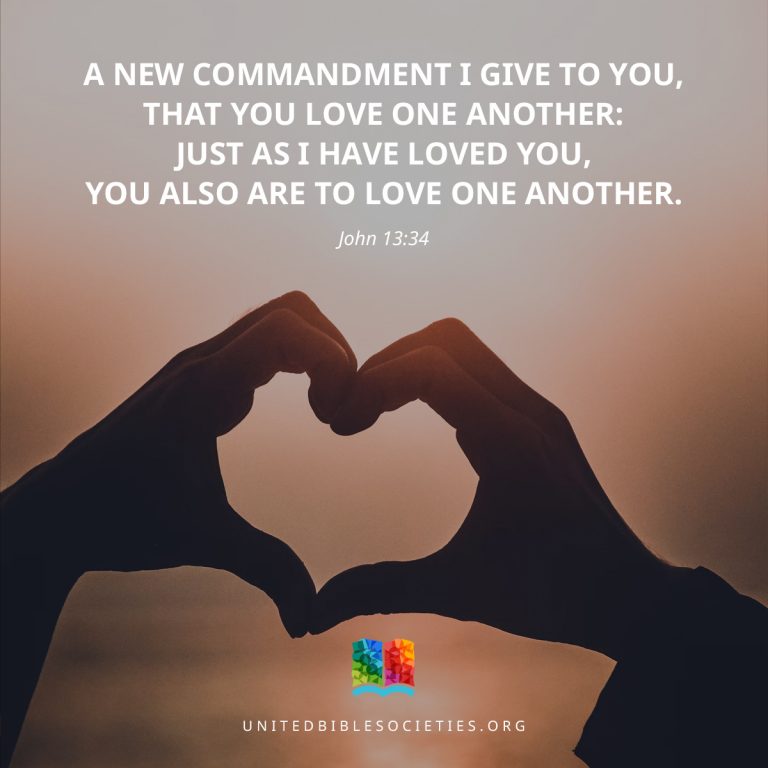1 What good is it to be a Jew? What good is it to be circumcised? 2 It is good in a lot of ways! First of all, God's messages were spoken to the Jews. 3 It is true that some of them did not believe the message. But does this mean that God cannot be trusted, just because they did not have faith? 4 No, indeed! God tells the truth, even if everyone else is a liar. The Scriptures say about God,
“Your words
will be proven true,
and in court
you will win your case.”
5 If our evil deeds show how right God is, then what can we say? Is it wrong for God to become angry and punish us? What a foolish thing to ask. 6 But the answer is, “No.” Otherwise, how could God judge the world? 7 Since your lies bring great honor to God by showing how truthful he is, you may ask why God still says you are a sinner. 8 You might as well say, “Let's do something evil, so that something good will come of it!” Some people even claim that we are saying this. But God is fair and will judge them as well.
No One Is Good
9 What does all this mean? Does it mean that we Jews are better off than the Gentiles? No, it doesn't! Jews, as well as Gentiles, are ruled by sin, just as I have said. 10 The Scriptures tell us,
“No one is acceptable to God!
11 Not one of them understands
or even searches for God.
12 They have all turned away
and are worthless.
There isn't one person
who does right.
13 Their words are like
an open pit,
and their tongues are good
only for telling lies.
Each word is as deadly
as the fangs of a snake,
14 and they say nothing
but bitter curses.
15 These people quickly
become violent.
16 Wherever they go,
they leave ruin
and destruction.
17 They don't know how
to live in peace.
18 They don't even fear God.”
19 We know that everything in the Law was written for those who are under its power. The Law says these things to stop anyone from making excuses and to let God show that the whole world is guilty. 20 God doesn't accept people simply because they obey the Law. No, indeed! All the Law does is to point out our sin.
God's Way of Accepting People
21 Now we see how God does make us acceptable to him. The Law and the Prophets tell how we become acceptable, and it isn't by obeying the Law of Moses. 22 God treats everyone alike. He accepts people only because they have faith in Jesus Christ. 23 All of us have sinned and fallen short of God's glory. 24 But God treats us much better than we deserve, and because of Christ Jesus, he freely accepts us and sets us free from our sins. 25-26 God sent Christ to be our sacrifice. Christ offered his life's blood, so by faith in him we could come to God. And God did this to show that in the past he was right to be patient and forgive sinners. This also shows that God is right when he accepts people who have faith in Jesus.
27 What is left for us to brag about? Not a thing! Is it because we obeyed some law? No! It is because of faith. 28 We see that people are acceptable to God because they have faith, and not because they obey the Law. 29 Does God belong only to the Jews? Isn't he also the God of the Gentiles? Yes, he is! 30 There is only one God, and he accepts Gentiles as well as Jews, simply because of their faith. 31 Do we destroy the Law by our faith? Not at all! We make it even more powerful.
1 Ŋen ŋawande Alyawuḏ yerṯo ŋəməñaṯo led̶a ɽrəto? Walla d̶aməd̶aṯa d̶awande d̶uɽəd̶ənia d̶ənanaid̶ia? 2 Alyawuḏ yerṯo ŋen ŋwaiña ŋəməñaṯo led̶a ɽrəto. Ananoŋ, yënəŋulu yaneinu ŋen ŋə-Rəmwa ṯa aiyərəmoṯe. 3 Orn ŋen ŋaɽo ṯau ndə led̶a ləmaṯan iŋulu lero lərəmoṯwa ŋen iŋi ŋopia? Ŋen eŋen ŋaɽwad̶aṯa ŋəbəd̶ia d̶əd̶urwaṯa d̶ə-Rəmwa ṯa ad̶əɽeṯe d̶əpiano? 4 Ndo, kwai kwai! Ŋgiṯr ŋen aŋələŋini ṯa Rəmwa raɽo d̶eṯəm orn led̶a pred̶ laɽəlen. Garno ŋen ŋəwërd̶ənu ṯa,
“Ndə agəɽwata ŋen aŋələŋini ṯa agaɽo d̶eṯəm,
na ṯa agid̶i ŋad̶ame led̶a ildi ləŋageiya
liga ŋen ŋəlaɽəŋa ŋinḏeini.”
5 Orn ndə ŋen ŋəd̶urwaṯo ŋə-Rəmwa ŋəbërrəŋeid̶ənia ndə ləgəɽrano eŋen, ləgabəṯrau? Ŋen ŋə-Rəmwa ŋaɽiano ndə rënəŋu rakəmia led̶a? (Egaɽwata ëli ŋen ŋarno led̶a ləɽwata.) 6 Ndo, kwai kwai! Ləgabaṯr ṯa Rəmwa raɽiano eŋen, ŋen rënəŋu raɽwad̶aṯa rakəmia led̶a lalo?
7 Orn, ŋen ŋanṯa ŋəɽəwen, na ŋen ŋəd̶eṯəm ŋə-Rəmwa ŋəbërrəŋeid̶əma kaiñ na ŋanaicia ŋaɽrwa, igakəmənia məldin ŋen ŋanṯa ŋen ŋəlëɽəñi ŋeicia ed̶a? 8 Fəṯau ləgaber ləgaɽwatar ṯa, “Alid̶r ŋen ŋeicia ṯa ŋen ŋəŋəra ŋid̶i aŋətwod̶au ŋəŋəra?” Đeṯəm, led̶a ləmaṯan landəbwaid̶ia ŋen, ldaṯa ṯa, nanda ñagaɽwata ŋen iŋi d̶urri! Ŋen ŋaŋəra ṯa lënəŋulu lakəmənu.
Ed̶a gera gənəŋ gəd̶urwaṯo eŋen
9 Ŋen ŋaɽo ṯau? Lëndr ləŋgr ləgəɽr Alyawuḏ ləgəməñaṯr led̶a ɽrəto? Ndo, kwai kwai! Ŋen ŋanṯa ləgasəkr Alyawuḏ na led̶a gerṯe laɽo Alyawuḏ ṯa lënəŋulu pred̶ lakasənu ŋenŋa ŋeicia 10 Ŋen ŋawërd̶ənu ṯa,
“Ed̶a gero gənəŋ gəd̶urwaṯo eŋen,
d̶eṯəm gerṯe gaɽo gonto,
11 ed̶a gero gənəŋ gələŋeṯo ŋen,
ed̶a gero gənəŋ gəbapwaiña Rəmwa.
12 Led̶a pred̶ laməño ldəṯwe lënəŋulu pred̶ lid̶u ŋen ŋeicia.
Ed̶a gero gənəŋ gəbəd̶ia ŋen ŋəŋəra,
d̶eṯəm walla gonto.
13 Ŋogor eŋen ŋarno rel irri rəgagid̶ənu.
Lënəŋulu laɽwata ŋad̶əna raŋəlara.
Laɽwata ŋen ŋeɽe ŋarno ŋəsia ŋimwa yeɽo cəŋge.
14 Ëiñua esen yundeinu d̶aboŋad̶a na ŋenŋa ŋeɽe.
15 Rəmanəña eren ralaldiña ṯa lënəŋulu aləɽiñəd̶e.
16 Lënəŋulu laɽatad̶a d̶əgera na d̶wana kaiñ ed̶en alo ləbəɽau.
17 Lënəŋulu laijəba d̶ad̶ d̶əd̶ëuṯaralo.
18 Na lënəŋulu lero ləd̶əñia Rəmwa.”
19 Ləgaləŋeṯr ṯa ŋen iŋi Alganun yaɽwata, yënəŋu yaɽwatiṯia led̶a ildi ləfo eŋələŋ ŋ-Alganun, ṯa ëiñua eled̶a pred̶ aiyëndeid̶əni na ṯa led̶a pred̶ lalo aləfeṯe ed̶akəmia d̶ə-Rəmwa. 20 Ed̶a gero gənəŋ gəɽwad̶aṯa gəbəd̶ənia gəd̶urwaṯo eŋen Rəmwa nëiñua ŋen ŋanṯa gënəŋu gëbəd̶ia ŋen pred̶ ŋ-Alganun ywonaṯa. Ŋen ŋanṯa Alganun yabërrəŋaicia led̶a ŋen ṯa aləŋeṯe ŋen ṯa lënəŋulu lëbəd̶ia ŋen ŋeicia.
Ŋen ŋəd̶urwaṯo ŋeṯo eŋen ŋəd̶wonaṯa ig-Almasiya
21 Orn d̶əñid̶i ŋen ŋəd̶urwaṯo ŋə-Rəmwa ŋërrəŋeid̶ənu ed̶ad̶ id̶i d̶əfo aləsoŋ gerṯe eŋen ŋ-Alganun, orn Alganun na alanəbiya laməd̶aṯo ŋen iŋi. 22 Ŋen ŋəd̶uiwaṯo ŋə-Rəmwa ŋafo ŋen ŋanṯa led̶a pred̶ ildi lëndu ŋen ŋəlëɽəŋu d̶wonaṯad̶a i-Yesu Almasiya. Led̶a pred̶ laɽwaṯo Rəmwa nëiñua, 23 ŋen ŋanṯa led̶a pred̶ lid̶u ŋen ŋeicia na lafo lero ləɽiñəd̶aid̶ia eŋaɽrwa ŋə-Rəmwa, 24 orn led̶a pred̶ lëbəd̶ənia ləd̶urwaṯo eŋen Rəmwa nëiñua na Rəmwa rëbəd̶ia ṯia eŋen ŋəd̶ənaica məɽəməɽeñ ŋen ŋanṯa d̶əpəɽa id̶i Almasiya Yesu gənaid̶o. 25 Ŋen ŋanṯa Rəmwa rëɽu Yesu Almasiya gəɽo d̶əɽəd̶ənia, ṯa led̶a ildi lëndu ŋen ŋəlëɽəŋu narna aloɽəbeini Rəmwa nano ŋəfəniŋa ŋəlëɽəŋu. Ŋen iŋi ŋërrəŋaid̶ia ŋen ṯa rad̶urwaṯo eŋen. Rënəŋu raŋgiṯu ŋen ŋeicia ŋəled̶a ildi ləfo pənde, liga Yesu gəmulu gəɽiñənia, ŋen ŋanṯa d̶walarano d̶əlëɽəŋu. 26 Đeṯəm, rënəŋu ranaid̶o Yesu ṯa arërrəŋaid̶i ŋen ṯa rënəŋu rad̶urwaṯo eŋen, ṯa rënəŋu rad̶urwaṯo eŋen na ṯa rëbəd̶ia led̶a ləd̶urwaṯo eŋen ildi lëndu ŋen ŋə-Yesu.
27 Nṯia d̶ëminia bəɽan d̶əled̶a d̶eṯo ŋga? Đëminia bəɽan d̶ero ŋeniano ndëuwər. Ed̶a, ŋen ŋəwande? Ŋenŋa ŋəŋəmëɽria iŋi ŋ-Alganun led̶a ləbəd̶ia? Ndo, ŋenŋa ŋəd̶wonaṯa i-Yesu. 28 Ŋen ŋanṯa ləgëndr ŋen ṯa ed̶a gëbəd̶ənia gəd̶urwaṯo eŋen d̶wonaṯad̶a d̶əlëɽəŋu, na gerṯe d̶id̶ia d̶əŋen ŋ-Alganun kwai kwai. 29 Orn Rəmwa raɽo Rəmwa r-Alyawuḏ ikərəŋ? Gerṯe rënəŋu raɽo Rəmwa rəled̶a ildi gerṯe laɽo Alyawuḏ com, 30 ŋen ŋanṯa Rəmwa raɽo ronto, irri rid̶i arid̶i led̶a ləd̶urwaṯo eŋen ildi luɽəd̶ənu ndə lënəŋulu ləbëndia ŋen ŋəlëɽəŋu d̶wonaṯad̶a, na rid̶i arid̶i led̶a ləd̶urwaṯo eŋen com, ildi lero luɽəd̶ənia, ndə lënəŋulu ləbëndia ŋen ŋəlëɽəŋu d̶wonaṯad̶a. 31 Ŋen ŋanṯa ŋenŋa iŋi, ləgëbəd̶iar Alganun yipiano d̶wonaṯad̶a? Ndo, kwai kwai, orn ləgëbəd̶iar Alganun ywonḏəṯo alo.



